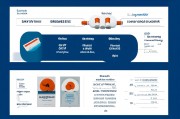本文目录导读:
- Introduction
- What is Gemini?
- Applications of Gemini
- Ethical and Societal Implications
- The Future of Gemini and AI
- Conclusion
Introduction
In the rapidly evolving landscape of artificial intelligence (AI), Gemini stands out as one of the most advanced and versatile AI models developed by Google DeepMind. Named after the zodiac sign symbolizing duality and adaptability, Gemini represents a new era of AI that combines deep learning, multimodal reasoning, and human-like interaction. This article explores the capabilities, applications, and ethical considerations surrounding Gemini, shedding light on how it is shaping the future of AI and human collaboration.
What is Gemini?
Gemini is a next-generation AI model designed to process and understand multiple data types—text, images, audio, and even video—simultaneously. Unlike traditional AI models that specialize in a single modality (such as text-based GPT models), Gemini is multimodal, meaning it can analyze and generate responses based on diverse inputs.
Key Features of Gemini:
- Multimodal Understanding – Can interpret and generate responses from text, images, and audio.
- Advanced Reasoning – Excels in complex problem-solving, scientific research, and logical analysis.
- Scalability – Available in different sizes (Ultra, Pro, Nano) to suit various applications.
- Human-like Interaction – Capable of more natural and context-aware conversations.
Applications of Gemini
Education and Research
Gemini has the potential to revolutionize education by acting as an AI tutor that can explain complex concepts in multiple ways—using text, diagrams, and even interactive simulations. Researchers can leverage Gemini to analyze vast amounts of scientific data, accelerating discoveries in medicine, physics, and climate science.
Business and Productivity
Companies can integrate Gemini into their workflows for:
- Automated customer support (understanding queries via text, voice, or images).
- Data analysis and reporting (processing financial reports, market trends, and visual data).
- Content creation (generating marketing materials, videos, and presentations).
Healthcare
Gemini’s ability to analyze medical images (X-rays, MRIs) alongside patient records can assist doctors in early diagnosis and personalized treatment plans. It can also help in drug discovery by processing biomedical research papers at unprecedented speeds.

Creative Industries
From AI-generated art to scriptwriting, Gemini can assist filmmakers, writers, and designers by offering creative suggestions, editing drafts, and even generating visual concepts based on textual descriptions.
Robotics and Autonomous Systems
Gemini’s multimodal capabilities make it ideal for robotics, enabling machines to understand spoken commands, recognize objects, and navigate environments more effectively.
Ethical and Societal Implications
While Gemini offers immense potential, it also raises important ethical questions:
Bias and Fairness
AI models can inherit biases from training data. Ensuring that Gemini provides fair and unbiased responses is crucial, especially in sensitive areas like hiring, law enforcement, and healthcare.
Job Displacement
As AI becomes more capable, concerns about automation replacing human jobs grow. However, Gemini is more likely to augment human work rather than replace it entirely, shifting job roles rather than eliminating them.
Misinformation and Deepfakes
Gemini’s ability to generate realistic text, images, and audio could be misused for deepfakes and fake news. Strong safeguards, such as watermarking AI-generated content, are necessary to combat this.
Privacy Concerns
Since Gemini processes vast amounts of data, ensuring user privacy and data security is paramount. Strict regulations and transparent AI policies must be enforced.
The Future of Gemini and AI
Gemini is not just another AI model—it represents a paradigm shift in how humans and machines interact. Future advancements may include:
- Real-time language translation with perfect contextual understanding.
- AI companions that assist the elderly and people with disabilities.
- Scientific breakthroughs by accelerating research in quantum computing, genetics, and space exploration.
However, the success of Gemini depends on responsible AI development, where ethical considerations are prioritized alongside technological advancements.
Conclusion
Gemini is a groundbreaking AI model that bridges the gap between human intelligence and machine learning. Its multimodal capabilities, reasoning skills, and adaptability make it a powerful tool across industries. Yet, as we embrace this technology, we must also address ethical challenges to ensure AI benefits humanity responsibly.
The future of AI is not about machines replacing humans—it’s about collaboration. With Gemini, we are stepping into an era where AI enhances human creativity, productivity, and problem-solving in ways we are only beginning to imagine.
The question is no longer if AI will transform our world—it’s how we will shape that transformation for the better. Gemini is leading the way.









